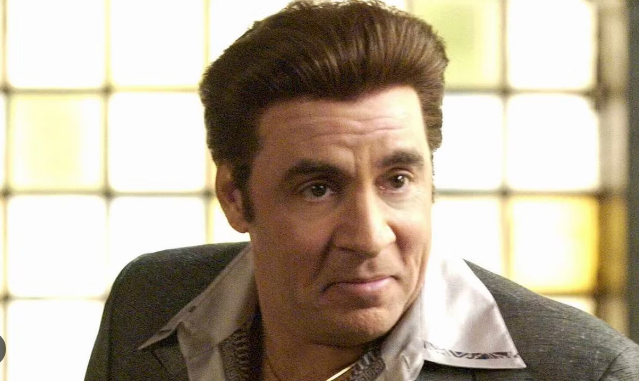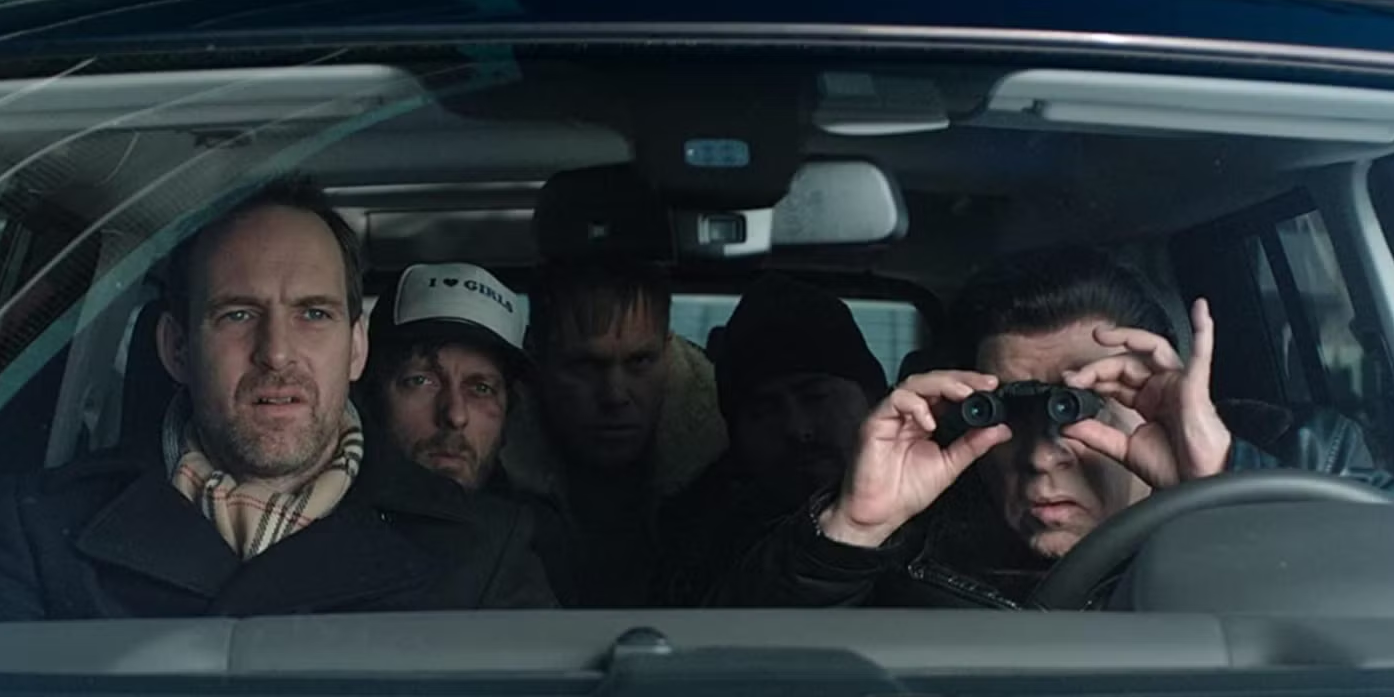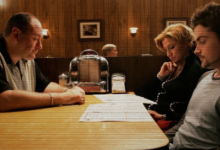Did Netflix Secretly Make a Sequel to ‘The Sopranos’?

Twenty-six years since it premiered, The Sopranos remains a raw and provocative account of criminal camaraderie, the unusual tangled matters of the heart, and the pliable structure of good and evil. But as good a show as it was, it left us with a few unanswered questions. The biggest one is about Tony Soprano.
What really happened to the DiMeo crime family boss at the diner in the finale? Did the “Man in the Members Only Jacket” give him the Sollozzo and McClusky treatment, or did he live to argue with Carmela a million more times? After all, his major feud with the Lupertazzi crime family had been solved. Could there have been another party willing to whack him? Series creator David Chase has remained cagey about the answer, refusing to bulge again in the recent “Making Of” docuseries, Wise Guy: David Chase and The Sopranos.
Another major question stems from the fate of the Russian mobster, Valery, from the show’s most critically acclaimed episode, “Pine Barrens.” After escaping from near death at the hands of Paulie and Christopher, he was never seen again. A question mark is also hanging on the collar of Tony’s consigliere, Silvio Dante (Steven Van Zandt).
Arguably the second-most likable mobster in the show after Paulie, Silvio was level-headed, never participating in unnecessary confrontations. Unfortunately, he was shot outside the Bada Bing during the Lupertazzi-DiMeo war, leaving him in a coma. The show never revealed whether he lived or died, which drives us to a theory about the Netflix gangster series. Lilyhammer.
In ‘Lilyhammer,’ Steven Van Zandt Is a Turncoat Hiding in Norway

Steven Van Zandt stars in Lilyhammer as Frank Tagliano, a former underboss from an American Mafia crime family, who is placed in the Federal Witness Protection Program after breaking the code of Omertà by “ratting” against his boss, Aldo Delucci (Thomas Grube). His actions have some justification because Aldo had ordered a hit on him after taking over as the Don.
Despite being under the Witness Protection Program, Frank harbors deep fears, aware that those who sing about “this thing of ours” are never truly safe. He thus requests to be relocated to Norway, where he befriends a handful of locals he thinks are best equipped to help him, and takes on a new identity as the Norwegian-American immigrant Giovanni “Johnny” Henriksen. However, he still flounders in conditions that unjustly groom him for a life on the wrong side of the law. Slowly, Frank/Johnny finds himself drawn into a world of shady gangs and romantic mingling, with a tantalizing damsel tormenting his soul at every turn.
The show was promoted as the first-ever Netflix original series, so it partially deserves credit for the binge culture that we see today. Even though Frank, aka, Johnny, lives in Lillehammer, Norway, the gangster drama is titled Lilyhammer because of his dog, Lily, killed in the first episode during an attempt on the gangster’s life. The tile also alluded to the way Americans pronounce the town’s name.
Lilyhammer was widely appreciated by both fans and critics, each season getting a “fresh” rating on Rotten Tomatoes. Through it, Zandt, who hadn’t acted in anything before The Sopranos, proved that he wasn’t an accidental star. He had the talent to steer a project of this magnitude on his own.
The show frequently employs elliptical storytelling techniques, but is crammed with so many arresting images of snowy beauty that you never care. It can easily be enjoyed on its own too, but fans of the critically acclaimed HBO show will be quick to note how Zandt’s character Frank Tagliano draws parallels to Silvio Dante. Could this be a secret sequel?
‘Lilyhammer’ Kinda Picks Up Where ‘The Sopranos’ Left Off

First, we need to assume that Silvio lived and Tony died. The DiMeo crime family thus has a new boss. Maybe he is even the person who secretly organized Tony’s killing. After all, this kind of thing happens so often in the Cosa Nostra. From the days of Salvatore Maranzano to the days of Paul Castellano, the boss-gets-a-bullet trend has played out numerous times.
Understandably, the new boss doesn’t want to deal with Tony’s former lieutenants, so he organizes for Silvio to also get whacked. As the smart person that he is, Silvio goes to the authorities and is placed under witness protection. He has always been a standup guy, but ratting against the enemy is never such a bad thing, especially if the said enemy killed one of your best friends.
Silvio has been in the game long enough to know that turncoats are never safe. Who could forget how Tony bumped into one such person in the Season 1 episode, “College” and garroted him to death. The former consigliere knows he has to leave America, so he heads to Norway and starts a new life as Giovanni “Johnny” Henriksen. Perfect!
In Lilyhammer, we notice that Frank/Johnny exhibits all of Silvio’s visions and mannerisms. Lay low? No way. A day doesn’t even pass before he attempts to bribe a Norwegian official. One of the first things he does on the show is to start a nightclub named The Flamingo. In The Sopranos, Silvio managed the Bada Bing!, so he must be missing his old life that involved ordering employees around. He cannot just sit around. He has to make himself useful. And what better way to make himself useful than set up a business he is very familiar with?
There’s more. Like Silvio, Johnny is a fan of popular gangster movies. In The Sopranos, Silvio does hilarious impressions of The Godfather: Part III, and in Lilyhammer, a scene where he bonds with an autistic boy via a discussion about Angels with Dirty Faces will warm your heart. On top of that, the character keeps unintentionally flaunting his comedy chops: watch him try to introduce American Christmas traditions to Norwegians.
Clearly the same guy.
The “Unofficial Sequel” Is a Common Way to Capitalize on a Popular Movie or TV Show’s Popularity

Lilyhammer sure passes as a follow-up, but it mostly falls under the “unofficial sequel” and “stretched homage” categories. Zandt’s acting smile makes it hard to differentiate Johnny and Silvio, but that could be all due to the fact that he isn’t a natural character actor. He can be categorized among “stars who play the same kind of character in every production,” having never spent a year in acting class. The similarities in characterization are partly tied to the fact that Netflix simply wanted to capitalize on The Sopranos’ popularity. After all, HBO would never issue the green light for a sequel and hand it over to a rival.
Hollywood is filled with unofficial sequels like Titanic II and Cruel Jaws, but one has to look back 34 years to see something similar in the gangster genre. In 1990, My Blue Haven (based on the book Wiseguy by Nicholas Pileggi) came out, capturing the life of Henry Hill after he went into the Witness Protection Program. The film is in no way associated with Martin Scorsese, but it is thematically in tune with his work. In it, Hill is renamed “Vincent ‘Vinnie’ Antonelli.” Interestingly, My Blue Heaven’s screenplay was written by Pileggi’s wife Nora Ephron, while Goodfellas was written by the author himself in collaboration.
Today, there are two kinds of Sopranos fans: those who want a revival and those who are happy with how things ended. Lilyhammer is great entertainment for lovers of hoodlum culture, but a proper follow-up wouldn’t be a bad idea, since several of the greatest TV shows of all time have followed that route. For example, Dexter’s fans didn’t like how the show ended, but Dexter: New Blood corrected the mistake. The world of the DiMeo crime family deserves to be expanded beyond what he saw in the prequel film, The Many Saints of Newark. Hopefully, it will happen.

